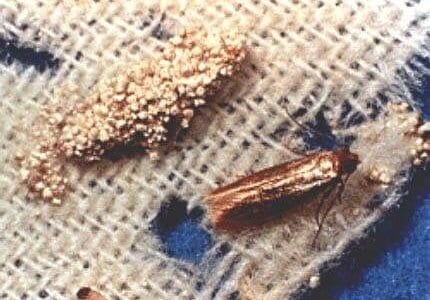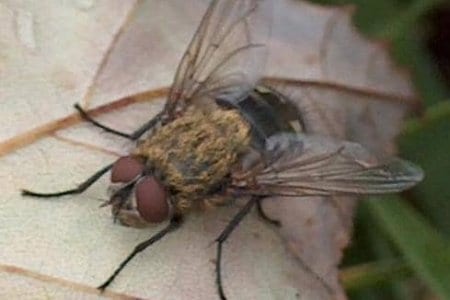
Wasps and hornets can both give life threatening stings whereas mosquitos and horse flies can both give nasty bites.

Many important diseases are carried by flies. Nobody likes to eat food over which a fly has walked.

Moths cause damage to fabrics and they tend to be the expensive ones such as cashmere or mohair.

The presence of a fly in a food product can lead to prosecution and damage to the producer’s reputation.

The buzz of wasps or hornets can provoke panic in some people leading to increased risk of being stung.

Talk to Pest Solution’s friendly, knowledgeable staff:

After carrying out a survey our technician will:

Our fully qualified and insured technicians will:

After completion of the treatment, our technician will:
Pest Solution supplies, repairs and maintains all makes and models of electric ‘blue light’ fly killers. An electric fly-killer is a machine that attracts flying insects including houseflies, wasps, moths and mosquitoes to ultra violet light where they are killed by a high voltage electric shock or stick to a glue board. For more information please contact us.
If you do not find the pest below, then please call for an identification and advice.

House flies lay their eggs in decaying material, particularly rubbish dumps and manure heaps. Under ideal conditions it can take as little as 2 weeks to complete their life cycle. Removal and exclusion of breeding sites, such as refuse areas, is essential. Space sprays with a knockdown action are a good method of control and again proofing of doors and windows. Electric fly killers can be effective at killing these flies when they enter premises.

As cold weather progresses, adults seek protected places to spend the winter, particularly during the autumn. In many cases the flies seek shelter within walls, roof voids and attics, usually returning to the same building year after year and often favouring south facing buildings. Adults are sluggish enough in the winter to be picked up with a vacuum cleaner. ULV treatments will provide a knock-down in lofts, but as with any loft treatment, the presence of bats and open water tanks must be checked before treatment.

Sometimes known as bar or vinegar flies, the female fruit flies lay their eggs on the surface of rotting fruit, fermenting juices, etc. They are a common pest in pubs and commercial kitchens. Should fruit or filter flies become abundant, a careful search for the larval breeding areas should be made, and the necessary housekeeping or maintenance measures taken. Any lingering adult flies may be controlled using a residual insecticide or ULV treatment.

Since bees are highly beneficial to the environment and are important for the pollination of many plant species, bees should not be killed and nests should be left undisturbed whenever possible. Pest Solution works with local bee keepers for the removal of swarms rather than destroying such an important insect. We will only consider destroying a nest or swarm if there is a high risk to public health or safety (such as in a school, hospital etc. or near to people who are allergic to bee stings) and all other options have been exhausted.